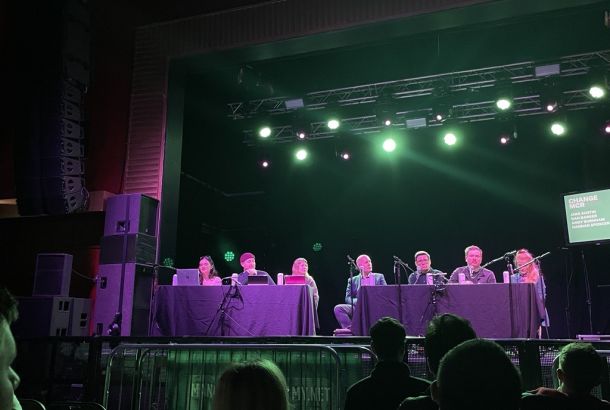“Do demonstrations actually change anything?”
In the run up to national student demo on the 21st November, this is a question I’ve been asked a lot. The last student demo in 2010 against £9,000 tuition fees had a record 50,000 students turn up – but the government ignored them and raised tuition fees anyway.
Surely then protest is useless? Surely the government just does what it wants regardless of what we say or do?
But if we look more closely, the rise to £9,000 fees was won by 323 votes to 302 – a majority of just 21. The governments’ majority was cut by almost three-quarters after a five-hour Parliamentary debate, whilst 50,000 students demonstrated outside. Twenty-one Lib Dem MPs and six Conservatives disobeyed their party leaders and listened to students instead.
We might not have won – but we made a big impact, made our voice heard and showed that we weren’t going to take it lying down.
Demo 2012 gives us a chance to impact the national debate at a time when the rights of young people are too often ignored. Here’s a question for first year students: How many of your friends from school or college decided not to go to university because they were worried about debt?
This year, 50,000 fewer students have gone to university because of the increase in tuition fees to £9,000. It is estimated that first year students at Manchester will be paying off graduate debt until they’re 50.
But what about the rest of us who were lucky enough to dodge the fee increase? Why would we go on a demo?
The answer is simple – youth unemployment is at a record high level of over 20%. This is whilst the government is cutting funding for the Job Centre and Connextions – both of which help young people back into work.
Many of those unemployed are subject to a new system of unpaid labour called Workfare. People who are unemployed and have to claim Jobseekers Allowance are offered a job that pays no wages – despite being with companies which can afford to pay them. If you refuse to accept this ‘opportunity’, your benefits are stopped and you are faced with the very real possibility of not being able to put food on the table.
Yet whilst many students struggle to find work after graduating, the university is shutting down one of the few courses where 100% of students go on to find work afterwards – Applied Youth and Community Work.
Right now, we need as many youth and community workers as we can find. Research on the summer riots showed the average rioter was male, aged 21, unemployed and with a previous criminal record. To phrase it another way, there are thousands upon thousands of young people with no hope for the future and who don’t care about the rest of society.
These are the people who youth workers focus on by working with them to build job aspirations and CV’s and in doing so working to keep them out of trouble. Even if you want to take a purely financial look at it, it’s far cheaper for the taxpayer to fund youth workers than prisons. That’s why shutting the Applied Youth and Community Work course isn’t just going to damage young people in the local community, it’s going to damage everyone else as well through increased crime levels.
But this demo isn’t just about focusing on what’s wrong. It’s chance for us to re-imagine how we want society to work in a fairer way and to make that view heard.
One of the main alternatives to the cuts is clamping down on corporate tax avoidance. Protesters and campaigners from the grop UK Uncut claim that in 2010 Vodafone was allowed to avoid £6bn in tax just 2 months after £6bn of cuts were announced to public spending by government. Conservative estimates of corporate tax dodging as a whole say that it costs the country at least £45bn. Due to consistent protests, this is being gradually clamped down on.
A Robin Hood Tax on banks is another alternative to the cuts supported by charities like Oxfam and the Salvation Army as well as two Nobel-prize winners for economics. It is a tiny tax of just 0.05% on financial transactions carried out by banks, which could raise £20bn in the UK each year to be reinvested in education and healthcare.
Demo 2012 is a chance to highlight what’s going wrong with education and society and how we can work together to fix it – that’s why the tagline is ‘Reclaim your education. Re-imagine society.’ So let’s make our voices heard and vote with our feet.







